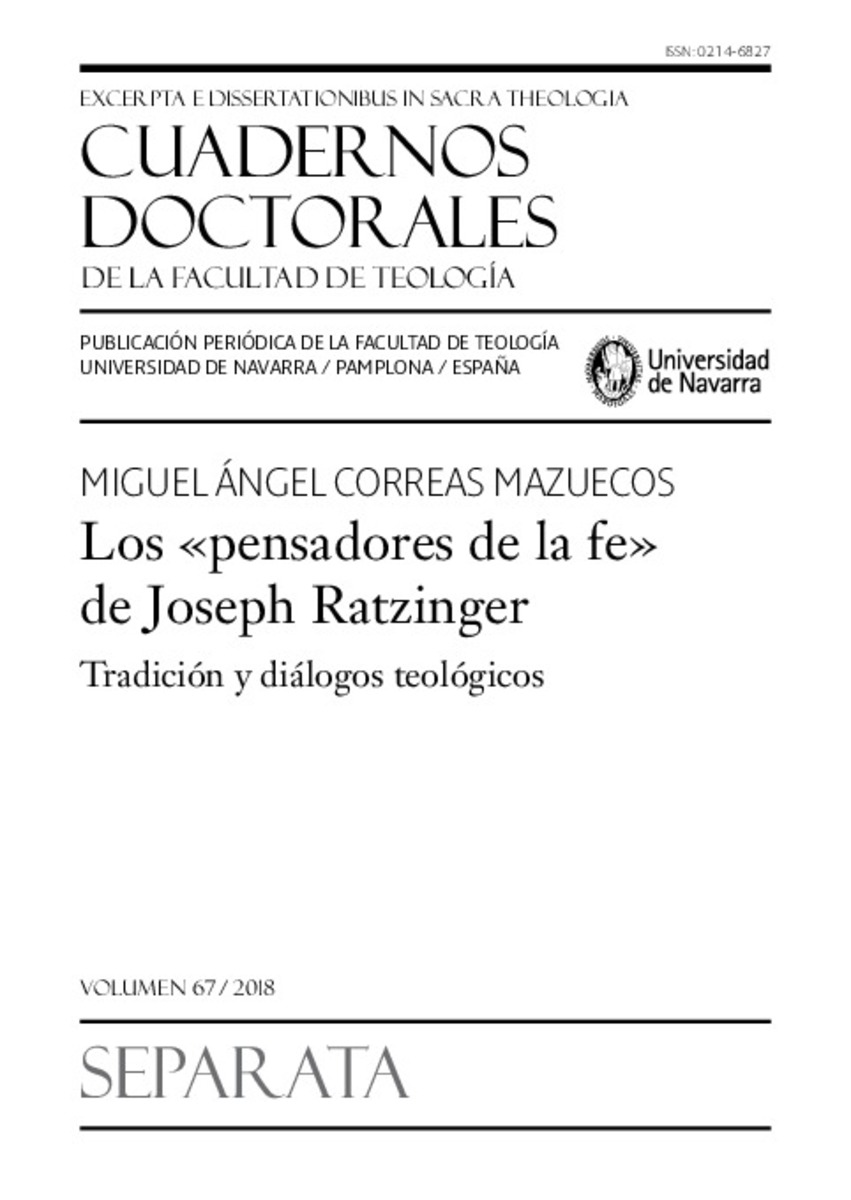Los «pensadores de la fe» de Joseph Ratzinger. Tradición y diálogos teológicos
Fecha de publicación :
2018
Editorial :
Servicio de Publicaciones de la Universidad de Navarra
Cita:
Correas-Mazuecos, M. Á. (Miguel Ángel). "Los «pensadores de la fe» de Joseph Ratzinger. Tradición y diálogos teológicos". Cuadernos Doctorales de la Facultad de Teología. Excerpta e Dissertiationibus in Sacra Theologia. 67, 2018, 5 - 107
Aparece en las colecciones:
Estadísticas e impacto
0 citas en

0 citas en

Los ítems de Dadun están protegidos por copyright, con todos los derechos reservados, a menos que se indique lo contrario.








